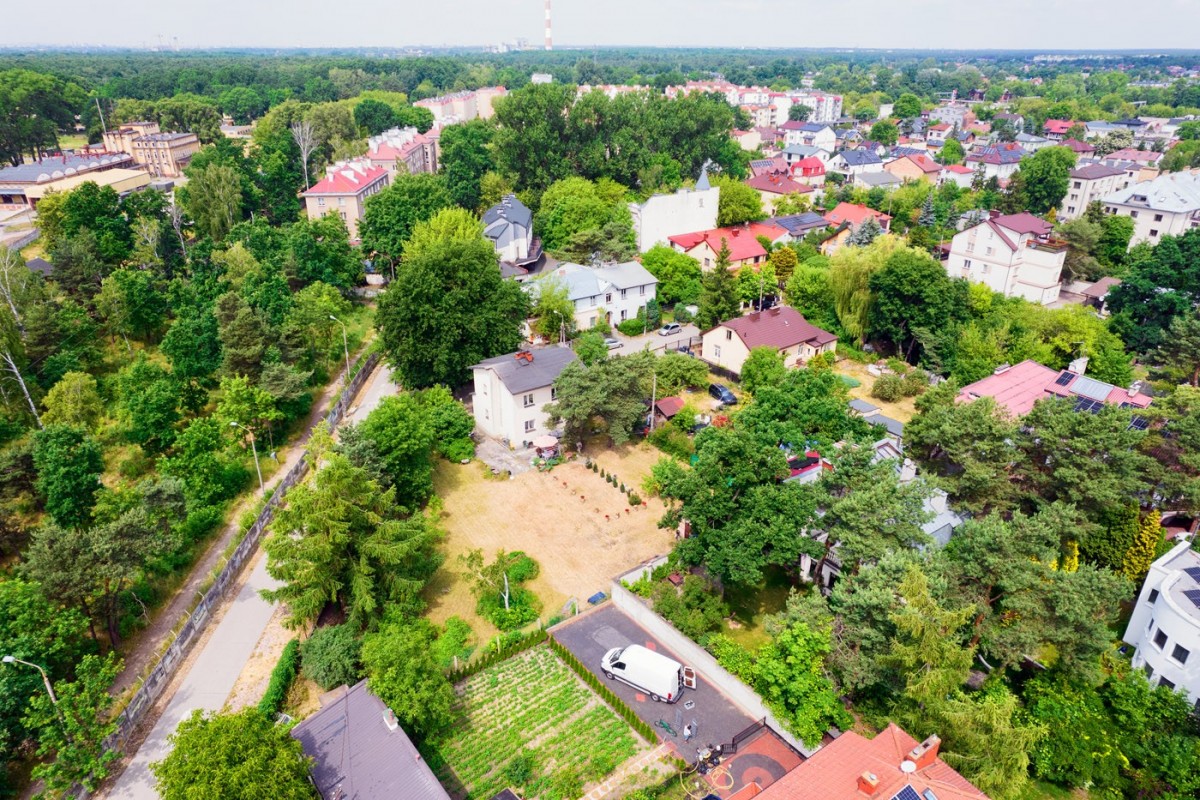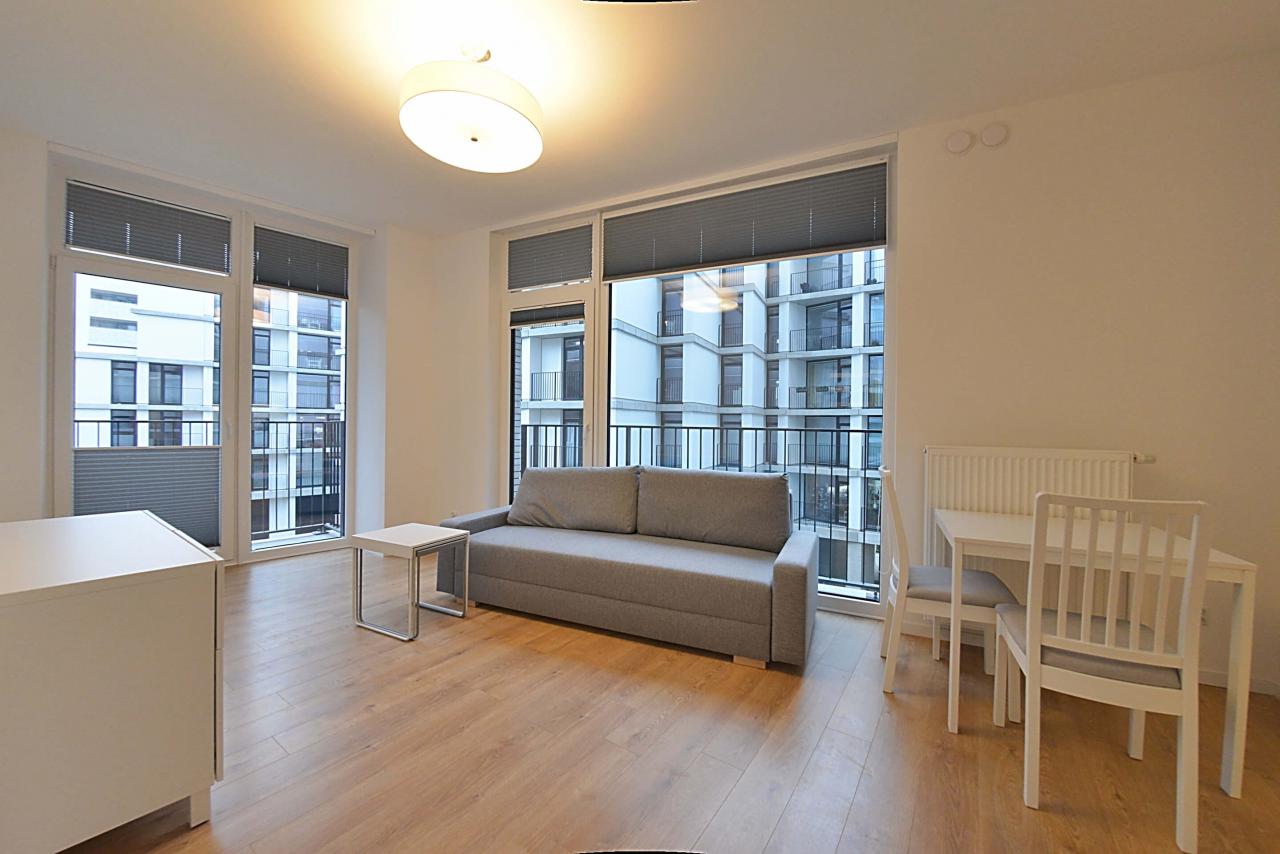Land Registry (Księga wieczysta) in Poland

Land Registry (Księga wieczysta) in Poland
Księga wieczysta (KW, cadastral book, land register, land-mortgage book or register - hereinafter Land Register or KW) is a public register that determines the legal status of a given property. It contains information about real estate, including property, mortgages, and other encumbrances. The register is maintained by district courts in the departments of the land and mortgage registry. Recording the ownership of real estate in the Land Register is a legal requirement. Land and mortgage registries are created for all types of real estate - buildings, premises and land. Entering property into the Land Register provides legal certainty and protection of property rights, which is necessary for both individuals and entrepreneurs.
Księga wieczysta (KW, cadastral book, land register, land-mortgage book or register - hereinafter Land Register or KW) is a public register that determines the legal status of a given property. It contains information about real estate, including property, mortgages, and other encumbrances. The register is maintained by district courts in the departments of the land and mortgage registry. Recording the ownership of real estate in the Land Register is a legal requirement. Land and mortgage registries are created for all types of real estate - buildings, premises and land. Entering property into the Land Register provides legal certainty and protection of property rights, which is necessary for both individuals and entrepreneurs.
The book consists of 4 sections:
• Section I - designation of the property,
• Section II - property,
• Section III - rights, claims and restrictions,
• Section IV - mortgage,
The process of entering property into the Land Register involves filing an application with the district court corresponding to the location of the property. All necessary documents, such as a notary deed, must be attached to the application and the required fee must be paid. From 2023, the fee for recording property, perpetual use or limited real rights in the Land Register is a fixed fee of 200 zlotys. Fees may vary depending on the type of record and the value of the property.
It should be noted that the Land Register is a complex legal document. Individuals and companies may seek legal advice when registering real estate. In addition, there may be circumstances in which benefits or reductions in fees are available, such as in the case of inheritance. To ensure a smooth and efficient registration process, we recommend that you carefully review the required documentation and requirements before submitting your application.
Abbreviated price list of Land Register entries from 2023
Introduction of Land Register - 60 PLN
Title records (eg acquisition) - 200 PLN
Articles on limited real rights - 100 PLN
Mortgage records - 150 PLN
Mortgage related entries (eg release) - 150 PLN
Records of cooperative ownership of premises - 100 PLN
Provisions on the right to cooperative ownership of premises - 100 PLN
Records of the right to perpetual use - 100 PLN
Claim statements (e.g., claim disclosure) - 100 PLN
Deleting an entry (for example, deleting a mortgage) - 60 PLN
Factors affecting the cost of registering property
The cost of registering a property in the Land Register can vary depending on several factors. One such factor is the type of property registered. For example, registering residential property entails different costs than registering commercial property. Additionally, the location of the property can also affect the cost of registration, as different regions may have different fees or taxes associated with registering a property. The value of the registered property can also play a role in determining the cost of registration, as properties with higher values may have higher registration fees. It is also important to constantly be aware of any updates or changes in the rules and fees associated with entering real estate into the Land Register.
In Poland, the cost of recording a property in the Land Register usually includes a fee for making the entry, as well as additional fees for individual entries in the book, such as property or mortgage entries. However, property owners may be exempt from recording costs under certain circumstances, such as adjusting the property's markings or obtaining a resolution to waive recording costs. It is important for property owners to consult with an attorney to determine the specific fees and requirements associated with registering their property with the Land Registry.
Our company OKEASK will help you with this, as well as many other things, when purchasing real estate. See more details here: https://okeask.com/public/en/our-service.
Real estate registration cost
Entering real estate into the Land Register involves various costs. This includes registration fees, notary fees, as well as taxes and other expenses. The fixed fee for an application for entry (registration) in the Land Register of property, perpetual use or limited property right is 200 zlotys. This fee applies regardless of whether the registration is done by yourself or by a notary.
If the application for registration in the Land Register is included in the notarial deed, then the fee for creating the Land Register is charged by the notary after making the entry. In addition to registration fees, notary fees (fees) may also apply. The amount of notary fees depends on the value of the registered property and the complexity of the registration process.
Taxation and other expenses may also arise when registering property in the Land Register. These costs may include civil court fees and fees for maintaining books and other record keeping equipment. It is worth considering all these costs when entering real estate into the Land Register.
Who pays for entry into the Land Register?
The fee for entry into the Land Register is paid by the person submitting the application. It does not matter whether it is the owner or another person.
How to pay a fee for entry into the Land Register?
The fee for entry into the Land Register can be paid in several ways - both in cash and non-cash.
1. Purchasing court fee signs on the court electronic payment platform. The system accepts payment by quick transfer, credit or payment card, Masterpass and BLIK-iem electronic wallet. You cannot return unused electronic signs or receive a refund for unused electronic signs.
2. Ordinary transfer to the court account - on the website of the district court competent in connection with the location of the property, a bank account for the land accounts department must be indicated.
3. Cash at the court's cash desk - a fee must be paid before submitting an application for entry into the Land Register.
If the applicant has a difficult life situation, for example, low income, he can ask for exemption from the costs of recording in the Land Register. An application with documentation supporting the reason for the court fee waiver must be submitted prior to filing an application for entry with KW. A property owner who receives a decree exempting the costs of entry into the Land Register must submit an application for entry within 3 months. After this time, the exemption becomes invalid.
How long does it take to make an entry in the Land Register?
The waiting period for an entry in the Land Register depends on many factors, including the number of applications submitted to the land accounting office of the district court and the number of accounting staff employed. The rules do not indicate how much time may elapse between filing an application for registration with KW and making the application. The property owner must be patient even for several months, especially if he is waiting for the mortgage to be recorded in the Land Registry.
How much does it cost to register in the Land Register?
The fee for changing an entry in the KW or a new entry in the KW ranges from 50 to 200 zlotys depending on the section of the Land Register and the purpose of the application. If a property owner applies to have an entry removed from the Land Register, they will pay half the fee that would be charged for the entry application.
Fee for entry into Section I of the Land Register (designation of the property)
A fee of PLN 100 applies to submit an application for:
• disclosure of information about the division of a plot based on an extract from the Land Register and an extract from the cadastral map or situational map,
• disclosure of information about the building based on an extract from the Land Register and an extract from the building file,
• changing the name or number of the street based on an extract from the Land Register,
• changing the method of use of real estate based on an extract from the Land Register,
• consolidation of real estate into one Land Register,
• exclusion of all or part of the property from the Land Register.
Fee for entry into Section II of the Land Register (property)
The fee for submitting an application for entry into section II of the Land Register ranges from 100 to 200 zlotys.
Purpose of submitting an application for entry into section II of the Land Register Fee for entry into section II of the Land Register:
• Change of personal data based on a copy of an abbreviated marriage certificate, an administrative decision or KRS (National Court Register) – 100 PLN
• If the purpose of the application is to record a share in ownership, the court fee is proportional to the amount of the share, but not less than PLN 100
• Registration of ownership rights, perpetual use, and cooperative ownership rights to premises acquired as a result of the division of common property after the termination of joint ownership – 150 PLN
• Registration of ownership, perpetual use, cooperative ownership of residential premises on the basis of inheritance, will or division of inheritance or cancellation of joint ownership - PLN
• Registration of ownership of agricultural real estate up to 5 hectares - 150 PLN
Registration of ownership, perpetual use or limited ownership (except in certain provisions where other fees are specified) - 200 PLN
Fee for entry into Section III of the Land Register (rights, claims and restrictions)
The fee for entry into section III of the Land Register ranges from 75 to 200 PLN.
Purpose of submitting an application for entry in section III of the Land Register Fee for entry in section III of the Land Register:
Removal of a warning based on a cease and desist order or court order - 50 PLN
• Removal of personal rights on the basis of a death certificate, a statement of the authorized person with a notarized signature – 75 PLN
• Removal of claim to collect fee for conversion of perpetual use to title - 75 PLN
• Removal of a personal easement based on a death certificate – 100 PLN
• Removal of a personal, land or perpetual easement based on an application by an authorized person to waive the easement with a notarized signature - 100 PLN
• Registration of personal, land or perpetual easement based on a notarial deed – 200 PLN
• Registration of personal or land easement based on a court decision - 200 PLN
Removal of claim for collection of fee for conversion of perpetual easement on title in case of payment of one-time fee.
Fee for entry into section IV of the Land Register (mortgage)
The fee for entry into section IV of the Land Register ranges from 100 to 200 zlotys
Purpose of filing an application for entry in section IV of the Land Register Fee for entry in section IV of the Land Register:
• Cancellation of mortgage - 100 PLN
• Transfer of mortgage to vacant mortgage space - 100 PLN
• Change in mortgage priority - 100 PLN
• Change of creditor - 100 PLN
• Registration of the mortgage lender's request to transfer the mortgage to the vacant mortgage space - 150 PLN
• Mortgage modification - 150 zlotys
Registration of a mortgage based on:
• bank certificate and application from the property owner to establish a mortgage - 200 PLN
• an appraisal report prepared by a property appraiser - 200 PLN
• court orders - 200 PLN
• writ of execution - 200 PLN
How much does it cost to register in the Land Register with a notary?
The cost of notary services is an individual matter. The notary charges:
• court fee for filing an application for inclusion in the Land Register (transfers it to the competent district court),
• tax on civil legal actions (for example, for establishing a mortgage),
• notary fee (in accordance with the resolution of the Minister of Justice of June 28, 2004 On the maximum rates of notary fees),
• VAT charged on notary services (23%),
• fee for making a copy of the notarial deed (6 zlotys for each page started).
The amount of the notary fee depends on the value of the property and the notarial activity. Let's assume that a notary must draw up a notarial deed that confirms the establishment of a mortgage. In this case, the highest fee that a notary can charge is half the amount specified in paragraph 3 of the regulation on the maximum rates of notary fees.
When planning to make an entry in the Land Register, you should prepare for expenses ranging from several tens to several hundred zlotys, especially if you are going to use the help of a notary. While the court fee to file an application to change a KW entry can be filed online within minutes, the wait for a KW entry will likely take many months.
Сonclusions
Including real estate in the Land Register is an important step in protecting the rights and interests of property. A registry serves as a public record of the legal status of a property, including ownership and any encumbrances or restrictions on use. Registration when purchasing property is a legal obligation and failure to do so may result in legal disputes and financial loss. Property owners are therefore advised to prioritize registering their property with the Land Registry to ensure legal protection and peace of mind.
Managing the costs of registering property in the Land Register is an important issue for property owners. From 2023, the fixed fee for an application for entry into the register of ownership, perpetual use or limited property right is PLN 200. However, they may incur additional costs associated with notary services, court substitution, and legal fees for challenging registry decisions. To manage these costs, property owners should seek competitive prices for notary and legal services and consider alternative dispute resolution methods to avoid costly litigation.
Blog

National Economy Entities in Warsaw (2024)
National Economy Entities in Warsaw (2024)


Housing prices in Poland in the fourth quarter of 2023
Housing prices in Poland in the fourth quarter of 2023





